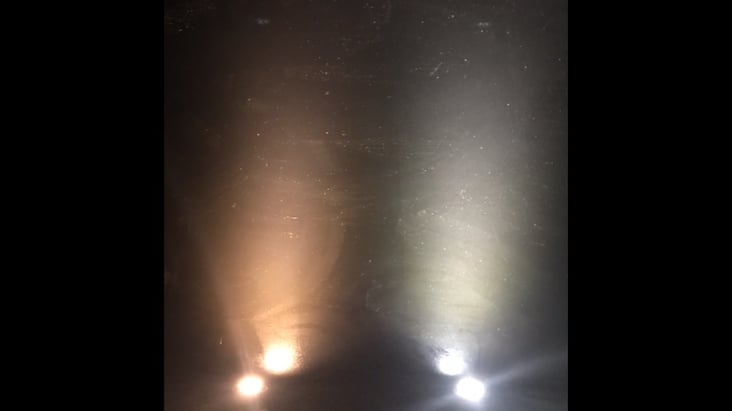What color temperature is best for landscape lighting? It’s our hope that this information will help you understand what professional lighting designers think about when working with different LED color temperatures.
- Carrier Air Conditioner Error Codes [Proven Solutions]
- The Best Outdoor Camera Settings to Capture Perfect Exposures Every Time
- Can Patio Furniture Get Wet? (And What To Do If It Does)
- Cordyline care: How to make your cordyline plants thrive and bring the tropics indoors
- What Are The Best Batteries For Blink Cameras ?
First, lets breakdown how color temperature is measured. When a designer refers to color temperature in lighting, they are referring to the character of the light (the way it feels). An LED’s color temperature is expressed in degrees Kelvin. The Kelvin temperature is characterized by a specific number followed with a “K” — i.e. 3000K.
You are watching: Design/Inspiration
So, how do you know what it means when a lamp says 3000K? It’s easy to remember: the lower the temperature, the warmer the light’s expression. A lit candle, for example, is close to 1700K. In contrast, higher Kelvin temperatures have a cooler feel. Anything 3500k or above is generally considered a cooler white color.
Manufacturers sometimes differ in how they label and define the titles for different color temperatures. For example, if you’re looking for a replacement bulb at a retailer/big box store, you may notice that the characteristic of the light will be described on the packaging as soft white or daylight. This can be confusing. If you understand Kelvin temperature then you can look for it on the packaging and have a much better idea what a particular manufacturer mean by “soft white”.

Here are some examples of kelvin temperatures you might see and a general description of what they look like:
- 2200K is an extremely warm white. In fact, 2200K is the lowest point in the white light scale. Anything lower than this would be considered yellow light.
- 2700K provides a warm incandescent feel. Think about the color temperature original incandescent light emits.
- 3000K is a slight step above 2700K. Not quite as warm as 2700K but still gives a warm feel.
- 3500K and anything above is considered cool. This is where we first enter into cooler color temperatures.
- 4000K-4500K is a cooler more natural light.
- 5000K-6500K is generally considered daylight and is where we start seeing extremely cool colors. Higher temperatures than 6500 start moving into the blue light spectrum
What Color Temperature is best for Outdoor Lighting?
Read more : How many lumens do I need for outdoor flood light? – LEDMyPlace
I can’t say there is any one color temperature that should be used in the landscape. After all, it’s all in the eyes of the beholder. That said, there are two fundamental points that need to be understood when thinking about color temperature and outdoor lighting.
First, people actually require far less lighting in their outdoor living space then they do indoors. This means the ambient lighting can be more subtle without overlooking task.
Second, in situations with lower levels of ambient light, people prefer warmer light with lower color temperatures. Warmer light is just more comfortable in situations with lover light levels. They are easier on the eyes and cause far less eye strain than cooler color temperatures.
Be it our primal draw to the comforting glow of a campfire, or our natural need to create relaxing and comfortable outdoor living environments, a lighting designer’s outdoor design objective is to create low light levels with warm tones.
2700K and 3000K
The 2700K temperature provides a calming natural tone that imitates halogen: a warm color we are all familiar with. As a result, 2700K is ideal for creating a warm light level for the landscape setting.
Read more : Beach Volleyball vs Indoor Volleyball: Rules and Regulations
3000K is a great alternative, too. 3000k is slightly cooler than 2700K but is a good alternate if 2700K would be too warm for a project. An example of this would be a more contemporary outdoor experience where higher Kelvin temperatures feel more at home.

Exceptions to Warm Colors
There are times when a lighting designer might use a higher Kelvin temperature on specific plants material or architectural elements to bring contrast and depth to the design. For example, using a 5000K lamp on a blue spruce will actually enhance and bring out the dark blues and silvers of the pine needles. Likewise, lighting cacti with a green/silver filter will bring out the plant’s true colors.
If you’re curious about the way color temperatures work and feel in different settings, experiment for yourself. Have fun with it. The best way to understand the effect color temperatures have is to simply look at the way lighting works and feels in your own home. Try using warmer light levels in bedrooms or the home office. See the difference color temperatures can make in your home for yourself.
Landscape Lighting Makes All the Difference
At Landscape Lighting Pro of Utah, the art of outdoor illumination is a real passion we work to perfect. Designing elegantly bespoke landscape lighting systems is simply all we do. For over 15 years, our award winning team of designers and craftsmen have striven to bring the best outdoor lighting experience possible to people’s homes and businesses across the Wasatch Front and beyond.
Located in Midvale, Landscape Lighting Pro of Utah installs, maintains, and repairs lighting systems throughout Utah’s residential areas, including Salt Lake City, Park City, Draper, Davis & Utah Counties.
If you have an upcoming project you’d like help with, call us at (801)440-7647 for more information, schedule a free consultation, or feel free to simply fill out a contact form.
Source: https://gardencourte.com
Categories: Outdoor


